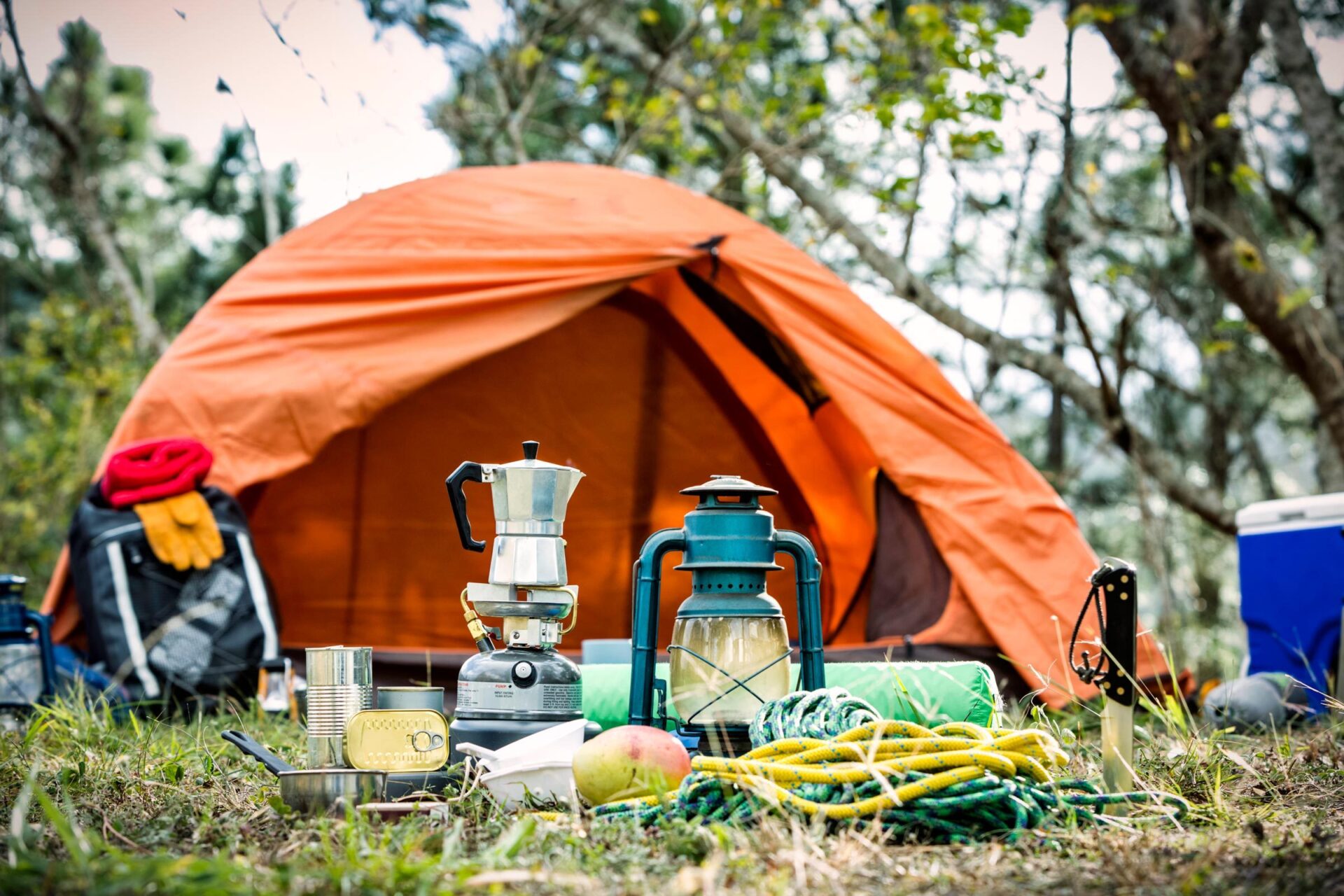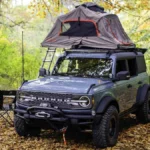Overlanding offers a unique blend of adventure, exploration, and self-reliance. Whether you are traversing deserts, forests, mountains, or coastal routes, having reliable overlanding camping gear is essential to ensure a safe, comfortable, and enjoyable journey. Unlike traditional camping, overlanding often involves extended trips in remote areas, requiring gear that is durable, lightweight, and versatile. From the perfect tent to a compact sleeping bag and efficient cooking equipment, the right tools make the difference between a memorable adventure and a stressful ordeal.
In this comprehensive guide, we will explore the most important camping gear for overlanding, including tents, sleeping bags, cooking equipment, and other portable essentials. We will also provide packing tips, gear recommendations, and practical advice to help you prepare for any overland adventure.
Understanding Overlanding Camping Gear
Overlanding combines off-road travel with self-sufficient camping. Unlike short weekend camping trips, overlanding trips can span days, weeks, or even months, often in areas far from civilization. This makes camping gear for overland trips fundamentally different from regular camping equipment.
Key characteristics of overlanding camping gear include:
- Durability: Gear must withstand rough terrain, extreme weather, and frequent use.
- Portability: Lightweight and compact equipment allows efficient packing and easy transportation.
- Multi-functionality: Items that serve multiple purposes save space and weight.
- Ease of setup: Rapid deployment of tents, sleeping setups, and cooking equipment is vital for safety and convenience.
Investing in high-quality gear enhances comfort and reduces the risk of problems in remote environments. From sleeping systems to cooking essentials, every item should be chosen with reliability and practicality in mind.
Tents for Overlanding
A sturdy and reliable tent is the cornerstone of any overlanding setup. It provides shelter from the elements, privacy, and a comfortable space to rest after a long day of exploration.
Types of Overlanding Tents
Overlanding tents come in several types, each with unique advantages:
- Rooftop Tents (RTTs): Mounted on the roof of your vehicle, RTTs offer convenience, safety from wildlife, and quick setup. For an in-depth guide on rooftop tents, check our detailed article: Overlanding Rooftop Tents: Best Options, Pros & Cons Explained.
- Ground Tents: Available in various sizes, ground tents are freestanding and often more affordable than RTTs. Options range from compact two-person tents to family-sized tents suitable for extended trips.
- Pop-Up and Hybrid Tents: These are designed for fast deployment, ideal for travelers who prioritize speed and convenience.
Features to Consider
When selecting the best overlanding tents, consider the following features:
- Durability: High-denier fabrics, robust poles, and strong stitching.
- Weather Resistance: Waterproof rainflies, sealed seams, and wind-resistant designs.
- Weight and Packability: Lightweight for easy transport without sacrificing durability.
- Capacity: Ensure sufficient space for occupants, gear storage, and comfort.
- Ventilation: Proper airflow reduces condensation and improves comfort during hot or humid conditions.
Best Overlanding Tents Recommendations
- RTTs: Ideal for solo travelers and couples, offering safety and convenience.
- Four-Season Ground Tents: Suitable for extreme weather conditions in mountains or deserts.
- Pop-Up Tents: Best for quick stops and short-term camping needs.
Selecting the right tent ensures restful nights and protects you from weather and wildlife hazards.
Sleeping Bags for Overlanding
A quality sleeping bag is essential for warmth, comfort, and energy restoration during overlanding trips. The wrong sleeping system can compromise both rest and safety.
Types of Sleeping Bags
- Down Sleeping Bags: Lightweight, compressible, and highly insulating. Ideal for dry conditions.
- Synthetic Sleeping Bags: Less expensive, retain warmth even when damp, and easier to clean.
- Temperature Ratings: Choose sleeping bags rated for the coldest expected temperatures. Overlanding trips often span multiple climates, so versatility is key.
Sleeping Pads and Comfort Accessories
Sleeping pads add insulation and cushioning between you and the ground:
- Foam Pads: Durable and inexpensive but bulkier.
- Inflatable Mattresses: Lightweight, compact, and comfortable for extended trips.
- Camping Pillows: Compact, compressible pillows enhance sleep quality.
Tips for Choosing Sleeping Bags for Overlanding
- Prioritize lightweight, compressible, and durable options.
- Match sleeping bag selection to climate and season.
- Consider modular systems for flexibility, such as liners for additional warmth.
Secondary keyword: sleeping bags overlanding is essential here.
Overland Cooking Equipment
Cooking while overlanding requires versatile, portable, and efficient tools. Preparing meals safely and comfortably ensures sustained energy for long drives and outdoor activities.
Portable Stoves and Burners
- Propane Stoves: Convenient and widely available, ideal for medium-sized meals.
- Butane Stoves: Lightweight and portable, suitable for solo travelers.
- Multi-Fuel Stoves: Can operate with multiple fuel types, offering flexibility in remote regions.
Cookware and Utensils
- Pots and Pans: Lightweight, durable, and compatible with your stove type.
- Multi-Purpose Tools: Folding knives, spatulas, and collapsible utensils save space.
- Compact Cooking Sets: Ideal for overlanders who need portable cooking solutions.
Food Storage and Safety
- Coolers: High-quality coolers maintain food freshness for days.
- Dry Storage: Airtight containers protect dry goods from moisture and pests.
- Bear-Proof Containers: Essential in wildlife-prone areas to prevent animal encounters.
Secondary keyword: overland cooking equipment fits naturally here.
Portable Camping Gear Essentials
Beyond tents, sleeping bags, and stoves, additional portable gear improves comfort, safety, and convenience.
Lighting and Power
- Headlamps: Hands-free lighting for nighttime activities.
- Lanterns: Provide ambient lighting for campsites.
- Portable Solar Panels: Offer renewable energy for electronics and small appliances.
Furniture and Comfort Items
- Folding Chairs and Tables: Compact and easy to transport.
- Hammocks: Lightweight resting solutions for warm climates.
- Privacy Shelters: Portable changing tents or shower enclosures.
Safety and Navigation Gear
- GPS Devices and Maps: Ensure accurate navigation in remote areas.
- First Aid Kits: Comprehensive kits for minor injuries and emergencies.
- Fire Extinguishers and Multi-Tools: Enhance safety during camp setup and emergencies.
Packing and Organization Tips for Overlanding Trips
Efficient packing reduces stress, maximizes space, and improves access to essential items:
- Storage Boxes: Stackable containers keep gear organized and protected.
- Compression Sacks: Ideal for sleeping bags, clothing, and soft items.
- Roof Racks and Vehicle Storage: Utilize vehicle space efficiently to transport heavy or bulky items.
- Gear Maintenance: Regularly inspect, clean, and repair equipment to ensure longevity.
FAQs About Overlanding Camping Gear
1. What is the best tent for overlanding?
Rooftop tents offer convenience and safety, while four-season ground tents provide versatility and durability for varied climates.
2. How do I choose a sleeping bag for overlanding?
Select sleeping bags based on climate, weight, compressibility, and insulation type (down or synthetic).
3. What cooking equipment is essential for overland adventures?
Portable stoves, lightweight cookware, multi-purpose utensils, and reliable food storage are essential.
4. How do I pack portable camping gear efficiently?
Use storage boxes, compression sacks, roof racks, and pack items by priority and frequency of use.
5. How can I maintain overlanding gear for long-term use?
Regular cleaning, inspection, and proper storage will prolong the life of tents, sleeping bags, and cooking equipment.
Conclusion & Call to Action
Equipping yourself with reliable overlanding camping gear ensures that your trips are safe, comfortable, and memorable. From choosing the right tent and sleeping bag to selecting portable cooking equipment and essential accessories, proper preparation makes all the difference.
For an in-depth guide on rooftop tents, check our detailed article: Overlanding Rooftop Tents: Best Options, Pros & Cons Explained.
Invest in durable, high-quality gear, plan your packing efficiently, and ensure that your next overland adventure is safe, well-prepared, and unforgettable.








